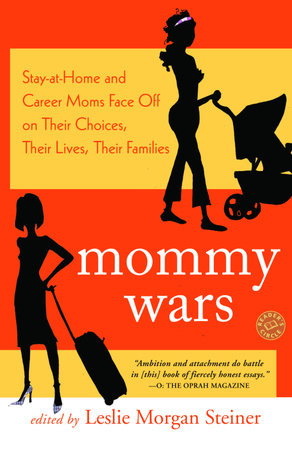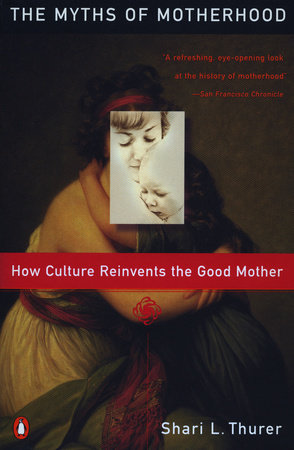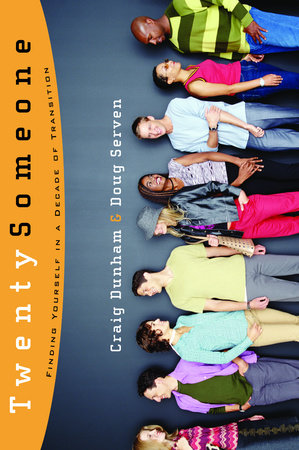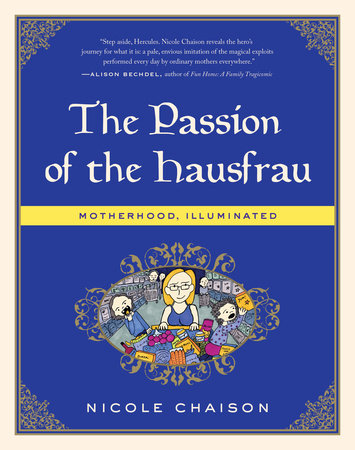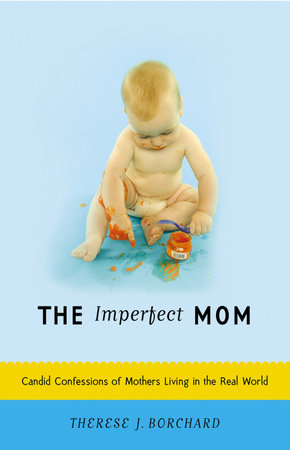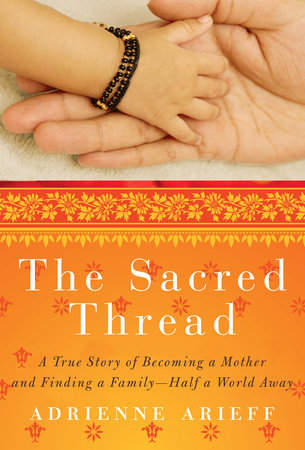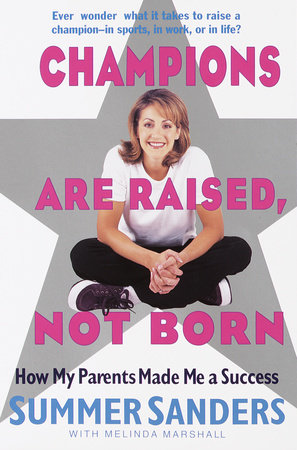Author Q&A
A Conversation with Leslie Morgan Steiner
Question: Why did you create Mommy Wars?
Leslie Morgan Steiner: As a working mom with three kids, I was very curious about (and probably jealous of) moms who seemed happy “just” staying home. I was also saddened by working moms stuck in jobs that didn’t give them enough time with their children. And I was totally exasperated by the endless studies analyzing the long-term effects of our choices about day care, breastfeeding, even potty-training, because the net effect seems to make us moms feel as if we are all falling down on the job. I wanted to hear from the real experts on motherhood–other moms–about what life is really like for working and for stay-at-home mothers today. My goal is for every mom who reads this book to feel better about being a mother. Because we all struggle with how much of our lives to give to our families, our work and ourselves. My hope is that Mommy Wars will make you laugh, cry and at some point throw the book across the room–because moms are opinionated about work and kids, as we should be.
Q: How did you find writers?
LMS: I could have flagged down the first twenty-six minivans driving by my house because every mom has a great story about work and family. I found moms everywhere: at work, on the playground, through friends. Some were famous, like Jane Smiley, Susan Cheever and Iris Krasnow. Others had never published anything before, but they had a lot to say.
Q: What surprised you the most?
LMS: How eager moms were to talk about their lives. How honest they were willing to be. And that some moms did not experience the same kind of working versus staying-at-home conflicts I did.
Q: Is the tension between working and stay-at-home moms real or imagined?
LMS: The “mommy wars” between working and stay-at-home moms are not typical wars where one side wins and the other one loses. Women are not looking to defeat other women. We are looking to feel good about ourselves as mothers–which is a pathetically difficult task in the United States today. Our society overall is conflicted between the “selflessness” of motherhood and the very real need women have to provide for themselves and their families. It is impossible to be a mother in America and live up to these ideals. Yet we have a lot of moms out there today trying to live up to both at once–trying to be loving, hands-on moms as well as successes at work. No wonder moms feel overwhelmed!
Q: Why so much conflict?
LMS: The tension between working and at-home moms is real, because our choices lead to profoundly different daily lifestyles. But the worst mommy war is the one that rages inside each mom’s head as she struggles to feel good about being a mom–no matter what her choices are about work. This inner battle plays out on an external stage– through the results of judgments made about other moms. Some women, when coming to peace with their choice either to stay at home or to keep on working, make a leap of logic and decide that the choice they make for themselves is best for every mother. This is simply not true. There are over eighty million moms in America, and no one work/family solution works for every mom. What is best for all mothers and for all children is for our society to support many different approaches to balancing work and family. Many women today, especially women in their thirties and forties, are very conflicted about how to be good moms. We are the first generation of American women to have watched our moms struggle with the question of working motherhood. Some of us feel caught between our mothers’ generation–one that didn’t have so many choices–and our daughters’ generation–one less na•ve about how hard it is to combine work and family. To make things even more complicated, our society is also uncomfortable with powerful, financially successful women, which makes working moms especially vulnerable to criticism.
Q: Do moms inflict these problems on themselves?
LMS: I don’t believe in blaming women–we suffer from too much finger pointing as it is. Nearly all of us have high–even impossible– standards for the kind of mothers we want to be. This striving for perfection makes us vulnerable to feeling like we are always falling short. When we feel insecure, our natural response is to put down others in order to make ourselves feel better. Human beings are naturally competitive; women are not exempt, especially when it comes to motherhood. It’s natural for us to want to be the finest moms we can be. So some degree of judgment about other moms, and competition with other moms, is normal, even healthy. But for many women, their natural competitiveness gets out of control. Terri Minsky writes about how, during one year as a stay-at-home mom, she sewed her child’s birthday party invitations. There is something out of whack, not just in moms but in our society overall, when we push our moms until they feel such a pervasive, irrational sense of failure.
Q: What do you feel about the role of fathers today?
LMS: Fathers today feel they are doing a lot in terms of parenting, because they are more involved in their children’s lives than their dads were. Bravo–but fathers are still doing a fraction of what mothers do in terms of household chores and daily child care. Women have earned a measure of equality at work. But there’s a long way to go before moms have true equality at home.
Q: What about the next generation of moms? Are they experiencing the same conflicts?
LMS: Many younger women and girls seem to take today’s freedoms for granted. And I think that’s wonderful. A teenage girl today with her life in front of her can think, “I can go to college and then work for a few years, then stay home with my kids, and then go back to work.” That kind of freedom is a luxury that I and many other feminists worked extremely hard to achieve. It will be interesting to see what today’s young women will have to say about work and family twenty years from now.
Q: After editing this book, did you find any solutions to the mommy wars?
LMS: I learned that the happiest moms tend to be the ones who have time with their kids and meaningful work, be it paid or volunteer– they work for companies or organizations that give them the flexibility they need to be good employees and good moms. We moms need each other, whether we work or not, and we’d be far better off if we supported all good mothering choices. Think about it: When was the last time you told someone you thought she was a good mom? We need to stand up for other moms, and stick up for ourselves. One of the essays in Mommy Wars is called “I Hate Everybody” and it gets to the heart of the fact that it is critical to feel good about yourself as a mom, no matter whether you choose to work or choose to stay home. And that self-esteem has to come from within, because no one in this country is in the business of telling moms to feel good about themselves. Our society needs to accept that it is normal and healthy for most moms to combine work and family. Statistics show that over 70 percent of women with children under the age of eighteen work. Moms in the book wrote candidly about how motherhood is the hardest “job” they’ve ever tackled, and how rewarding it is. What makes motherhood unnecessarily hard is that moms get little encouragement from men, from the government, from employers–or from other moms. What I’ve heard from the thousands of parents I talked to while researching and writing Mommy Wars and writing my online column for The Washington Post is that women today need what all parents need: support and flexibility from our employers, our government, our friends and our families–our society–so that we can find individual ways to combine work and family that reflect our individual approaches to parenting.
